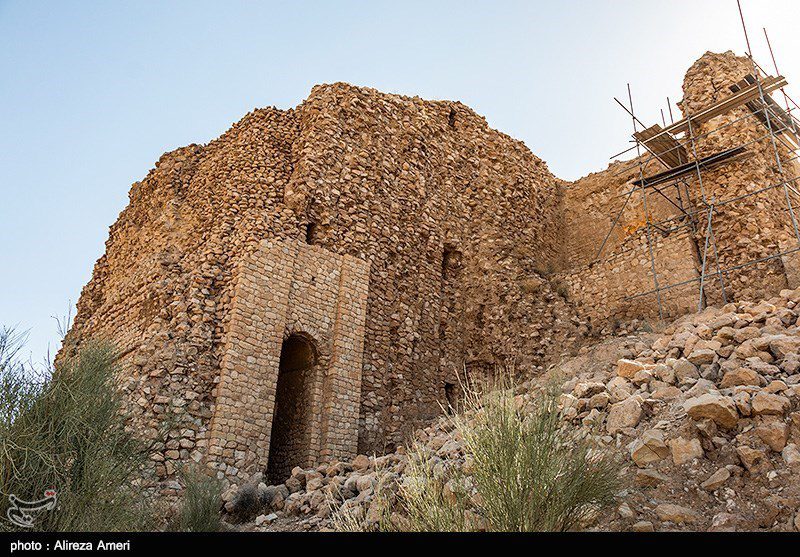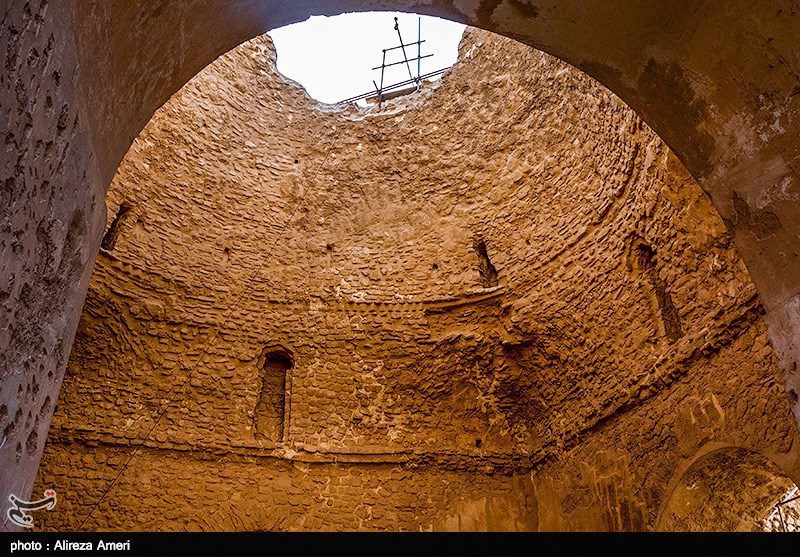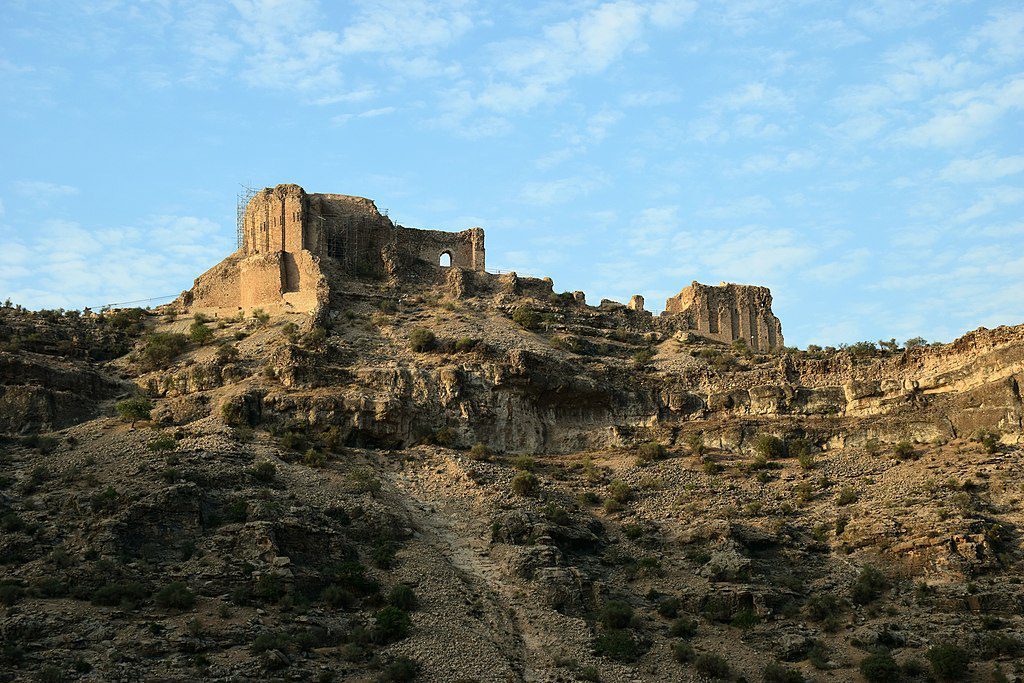Table of Contents
Welcome to our comprehensive guide on Qal’eh Dokhtar, a remarkable historical site located in Firuzabad, Iran. As a leading authority on historical landmarks, we are thrilled to present you with an in-depth exploration of this majestic fortress. Qal’eh Dokhtar, also known as the Maiden’s Castle, holds significant historical and architectural importance, making it a must-visit destination for history enthusiasts and travelers alike.
History of Qal’eh Dokhtar
Qal’eh Dokhtar’s rich history dates back to the Sassanian era, around the 3rd century AD. It was built during the reign of Ardeshir I, the founder of the Sassanian Empire. The fortress was constructed to serve as a defensive stronghold against potential invasions, reflecting the strategic brilliance of the ancient Persians.

Architecture and Design
Qal’eh Dokhtar showcases exemplary Sassanian architectural style and craftsmanship. Its unique design captivates visitors, taking them on a journey back in time. The fortress stands atop a hill, overlooking the stunning landscape of Firuzabad. Let’s delve into the architectural details:
Exterior Structure
The exterior of Qal’eh Dokhtar is an imposing sight to behold. Its circular shape, constructed using large stone blocks, exhibits the skillful masonry techniques employed by the Sassanian artisans. The use of sturdy materials has enabled this structure to withstand the test of time, standing tall for centuries.

Inner Chambers
Upon entering Qal’eh Dokhtar, visitors are greeted with a labyrinth of interconnected chambers and halls. These chambers once served various purposes, including residential areas, administrative spaces, and storage rooms. The intricate architectural elements, such as arched doorways and ornate columns, showcase the Sassanian mastery in blending aesthetics with functionality.
Tang-e Chogan and Surrounding Landscape
Nestled within the beautiful Tang-e Chogan valley, Qal’eh Dokhtar offers a breathtaking view of its surroundings. The valley is adorned with lush greenery, complemented by a meandering river that adds to the tranquility of the area. Visitors can enjoy a leisurely stroll through this scenic landscape, immersing themselves in the serenity of nature.
Exploring Qal’eh Dokhtar
When visiting Qal’eh Dokhtar, there are several highlights that you simply cannot miss. Here are some of the must-see features and experiences:
1. The Main Tower
At the heart of the fortress stands the main tower, an architectural marvel. Climbing to the top provides visitors with panoramic views of the surrounding countryside. The awe-inspiring vistas and the cool breeze make this an unforgettable experience.
2. Wall Walk
Embark on a journey along the perimeter of the fortress by taking a walk on the walls. As you tread the ancient pathways, you’ll be able to imagine the lives of the Sassanian guards who once patrolled these ramparts, protecting the empire from any threats.
3. Cultural Significance
Qal’eh Dokhtar represents not only a historical landmark but also a testament to the rich cultural heritage of Iran. It serves as a reminder of the ancient civilizations that flourished in this region and their contributions to art, architecture, and warfare.
How to Get There
To reach Qal’eh Dokhtar, you can start by flying to Shiraz International Airport, located approximately 120 kilometers away from Firuzabad. From there, you can hire a taxi or use local transportation services to reach the fortress. The journey offers picturesque views of the Iranian countryside, adding to the overall experience.
Archaeological Sites in Iran: Unveiling the Richness of Ancient Civilizations
Iran, with its long and storied history, boasts a wealth of archaeological sites that offer a glimpse into the fascinating civilizations that once thrived in this land. From the mighty Persian Empire to the ancient Elamites and Parthians, Iran is a treasure trove of historical remnants. Let us delve into the remarkable archaeological sites that make Iran a captivating destination for history enthusiasts.
1. Persepolis
Persepolis, also known as Takht-e Jamshid, stands as one of the most renowned archaeological sites in Iran. This majestic city was once the ceremonial capital of the Achaemenid Empire and served as a testament to the grandeur and power of ancient Persia. The ruins of Persepolis feature impressive palaces, monumental staircases, intricate reliefs, and massive columns, all reflecting the artistic and architectural achievements of the empire.
2. Pasargadae
Located near the city of Shiraz, Pasargadae is a UNESCO World Heritage site that was the capital of the Achaemenid Empire under Cyrus the Great. The site holds immense historical significance as it houses the tomb of Cyrus the Great, the founder of the Persian Empire. The tomb, known as the Cyrus Cylinder, is a revered symbol of human rights and a testament to the progressive policies of the empire.
3. Susa
Susa, situated in southwestern Iran, was once a prominent city in the ancient world. It served as the capital of the Elamite civilization and later became an important center for the Persian Empire. Excavations at Susa have unearthed fascinating artifacts, including the Code of Hammurabi, which sheds light on the legal systems of ancient Mesopotamia. The site also features the renowned Apadana Palace, which showcases intricate architectural details and vivid relief sculptures.
4. Bisotun
Bisotun, a UNESCO World Heritage site, holds historical significance as it houses the famous Bisotun Inscription. Carved into a towering cliff, the inscription is a multilingual proclamation by Darius the Great, providing valuable insights into the history and languages of the Achaemenid Empire. The site also features rock reliefs depicting scenes of victory, showcasing the might and prowess of the Persian kings.
5. Shahr-e Sukhteh
Shahr-e Sukhteh, meaning “Burnt City,” is an ancient settlement in southeastern Iran that dates back over 5,000 years. This archaeological site offers a glimpse into the lives of the Bronze Age inhabitants, with its well-preserved structures, artifacts, and evidence of an advanced urban society. Excavations have revealed intricate pottery, metalwork, and evidence of early urban planning, shedding light on the early civilizations that flourished in this region.
6. Chogha Zanbil
Chogha Zanbil, a UNESCO World Heritage site, is an extraordinary testament to the Elamite civilization. This ziggurat, a stepped pyramid-like structure, was built as a religious center dedicated to the Elamite deities. The site showcases the ingenuity of ancient engineering and the religious beliefs of the Elamite people. Visitors can explore the well-preserved ziggurat, along with its surrounding temples and fortifications.
Iran’s archaeological sites provide a captivating window into the past, unraveling the mysteries of ancient civilizations and showcasing the cultural richness of the region. Exploring these sites allows visitors to connect with the grandeur and achievements of bygone eras, offering an unforgettable journey through time.
Experience the Best of Iran’s Archaeological Sites with a Knowledge-Based Tour
If you are an avid history enthusiast and wish to immerse yourself in the rich archaeological wonders of Iran, embarking on a knowledge-based and archaeological tour is an ideal choice. By joining a tour that focuses on Iran’s archaeological sites, you can explore these ancient treasures with expert guides who will unravel their historical significance and cultural importance. One exceptional tour operator that specializes in providing customized tours to Iran is ToIranTour.
Discover Iran’s Ancient Splendors with Customized Tours
ToIranTour offers a range of customized tours that cater to the preferences and interests of travelers seeking to explore Iran’s archaeological sites. With their expertise in creating tailored itineraries, they ensure that every aspect of the tour aligns with the traveler’s desire for a profound archaeological experience.
Unveiling Iran’s Cultural Heritage
Iran is home to a plethora of archaeological sites, each with its own unique charm and historical significance. With ToIranTour, you can embark on a journey that takes you to iconic destinations such as Persepolis, Pasargadae, Susa, Bisotun, and many more. Their knowledgeable guides provide insightful commentary, sharing stories and historical context that bring these ancient sites to life.
Expert Guides and In-Depth Exploration
ToIranTour’s team consists of experienced and passionate archaeology experts and local guides who possess extensive knowledge about Iran’s archaeological heritage. They understand the intricacies of each site and are dedicated to ensuring that you have an enriching and unforgettable experience. From deciphering ancient inscriptions to explaining architectural details, their expertise adds depth to your exploration.
Tailored Itineraries for Personalized Experiences
What sets ToIranTour apart is their commitment to creating personalized itineraries. They understand that every traveler has unique preferences and interests. Whether you wish to focus on a specific time period, delve deeper into a particular archaeological site, or combine cultural experiences with archaeological explorations, they will design a tour plan that suits your desires.
Immerse Yourself in the Magic of Iran
By choosing ToIranTour for your archaeological adventure, you can rest assured that you will have a seamless and enjoyable experience. From arranging accommodations to organizing transportation and handling logistics, they take care of every detail, allowing you to fully immerse yourself in the magic of Iran’s ancient past.
